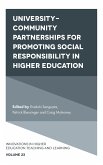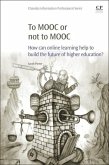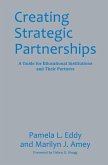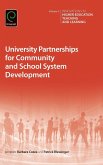As this collection indicates, everyone pursues partnerships in education, but few understand their roles and limitations. Given the necessity of combining limited resources, however, such efforts are bound to continue. Mitchell and his colleagues begin their review of expert-based partnerships with those in universities and regional research laboratories. Less well-known partnerships are included based on technology and constructivist learning. A review of resource partnerships for science demonstrates different types of relationships from team to chain relationships. As Mitchell points out, advocacy is a basis for justifying, publicizing, and expanding particular partnerships. Advocacy efforts include virtual schools, environmental and business links, community service by university students, and community support for music. These efforts assume exploration of alternatives occurs at an earlier stage. Less complete efforts to change are the basis of boundary spanning among different organizations. Social services and schools relate immediate safety problems, but not as yet new learning strategies. Computer-based instruction can be useful in overcoming rural and urban differences. The various case studies provided point to the utility and limitations of educational partnerships, making this work of interest to scholars, researchers, and policy makers involved with educational administration and change.
Hinweis: Dieser Artikel kann nur an eine deutsche Lieferadresse ausgeliefert werden.
Hinweis: Dieser Artikel kann nur an eine deutsche Lieferadresse ausgeliefert werden.








